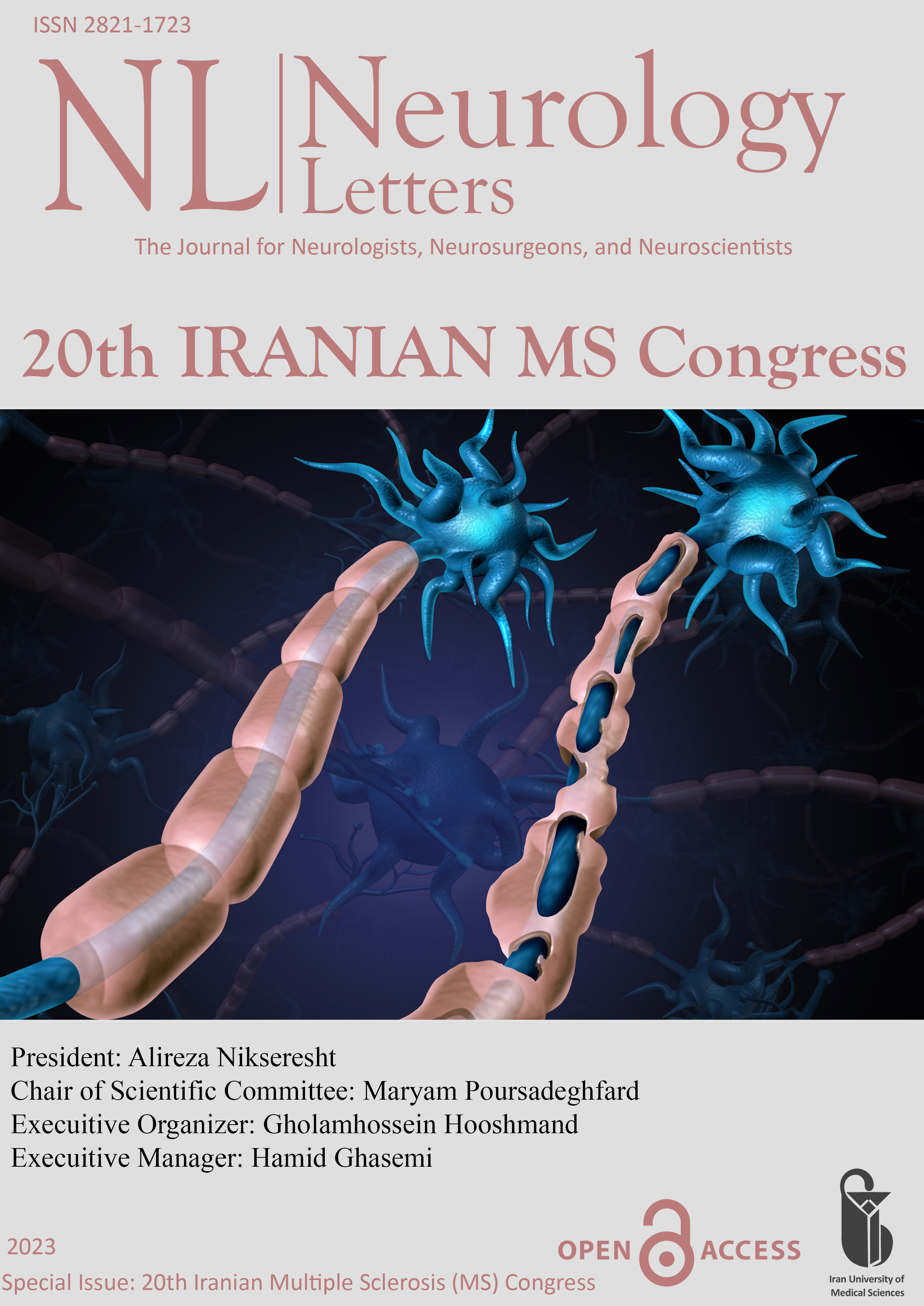Patient Monitoring during Treatment with Ocrelizumab and Rituximab (ORP-49)
Document Type : Oral Presentation
Author
Neurology Department, Imam Reza Hospital, Kermanshah University of Medical Sciences, Kermanshah, Iran
Abstract
Monoclonal antibodies that target CD20 expressing B cells represent an important new treatment option for patients with multiple sclerosis (MS). This therapy may be associated with an increased risk of adverse effects which are reviewed in this study.
The generally favorable safety profile of anti-CD20 therapies may be due to several factors. First, although B cell depletion from the circulation is nearly complete, only 2% of the body’s total lymphocyte pool exists in peripheral blood, and depletion of the body’s major stores of B cells in lymphoid organs is only partial. Early B cell precursors and late-stage plasma cells are both CD20-negative and unaffected by treatment, meaning that immune reconstitution by stem cells and pre-existing humoral immunity mediated by long-lived plasma cells are both preserved.
The most important adverse effects are Infusion Related Reactions (IRR), infections, PML, Immune mediated colitis and malignancy.
Infusion reactions are frequent and include: itchy skin, rash, hives, tiredness, coughing or wheezing, trouble breathing, throat irritation or pain, feeling faint, fever, redness on face (flushing), nausea, headache, swelling of the throat, dizziness, fatigue and fast heartbeat. Reduction of these IRR is possible with using premedication with methylprednisolone (100 mg IV) 30 minutes prior to each infusion, and an antihistamine (e g, diphenhydramine) 30 to 60 minutes prior each infusion; may also consider premedication with acetaminophen. Further reductions in IRR frequency can be obtained instructing patients to increase hydration from one day before the infusion and to take cetirizine 10 mg on the night before and morning of the infusion.
Infections are the other concern in this type of treatment. The most common infections are Herpes infections, upper respiratory tract infections, lower respiratory tract infection, hepatitis B virus (HBV) reactivation, weakened immune system and Progressive Multifocal Leukoencephalopathy (PML). Prior to initiating therapy, screening all patients for hepatitis B virus (HBsAg and anti-HBc measurements), and screening for latent infections (eg, hepatitis, tuberculosis) in high-risk populations or in countries with a high tuberculosis burden are recommended.
Treatment with anti-CD20-mAb results in a decrease in total immunoglobulins, mainly driven by reduction in IgM. Monitoring of quantitative serum immunoglobulins during treatment, especially in patients with opportunistic or recurrent infections and after discontinuation of therapy until B-cell repletion is recommended.
A review of post marketing cases identified 38 cases consistent with inflammatory, non-ischemic, and non-infectious colitis in association with ocrelizumab. This case series highlights ocrelizumab induced immune-mediated colitis that can be clinically severe and potentially life-threatening. Attention to gastrointestinal symptoms during treatment is crusial.
There was a small but concerning imbalance in the number of malignancies, and breast cancer in particular, in MS patients who received ocrelizumab in the phase 3 trials. The total numbers of patients with breast or other cancers in the ocrelizumab-treated populations were not higher than epidemiological expectations. The incidence of cancer has fallen during the subsequent open-label extension studies. There are no official recommendations for increased malignancy surveillance screening in patients receiving ocrelizumab. Rituximab, after 20 years and > 4.8 million total infusions, has also not been associated with any increased risk of malignancy. Age-appropriate cancer screening guidelines should be followed.
Keywords
 Neurology Letters
Neurology Letters
